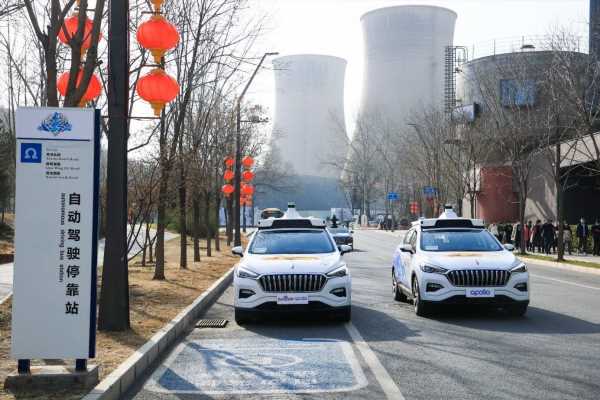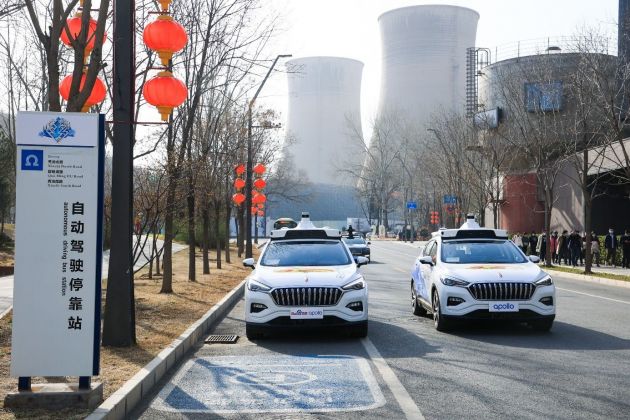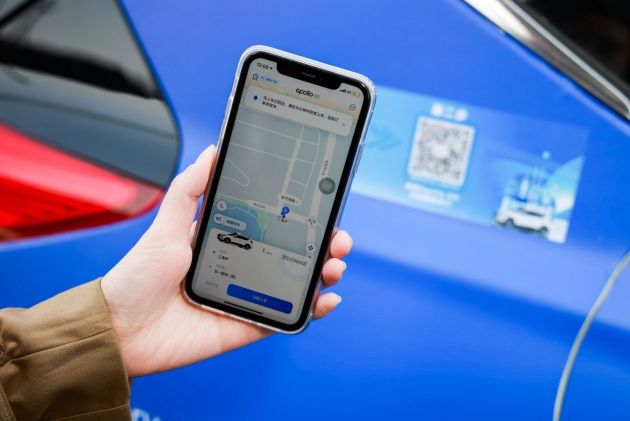Baidu has opened its Apollo Go fully driverless robotaxi service to the public in Beijing, where users will be able to hail a robotaxi without a safety driver at the vehicle’s controls. Shougang Park in Beijing is the first location to see the roll-out of the robotaxi service, and is also one of the venues for the 2022 Beijing Winter Olympics, where visitors will be using the driverless service.
Baidu is the first Chinese company to roll out a fully driverless taxi service for commercial operation, says the company. The Apollo Go mobile app enables users to locate and hail a nearby robotaxi through a system of unmanned, self-service processes.
Virtual reality navigation and remote honking helps users identify the location of the robotaxi, which requires its users to unlock the vehicle by scanning a QR code and health code on the vehicle, and to verify their identity and for pandemic prevention purposes, said Baidu.
Upon boarding the vehicle and pressing a button to start the journey, the system will ensure that all passenger safety protocol checks are completed – such as the shutting of doors and fastening of seat belts – before beginning the trip. Here, a 5G remote driving service is active at all times to allow human operators to remotely access the vehicle in case of “exceptional emergencies,” said the company.
The robotaxis will be transporting users to and from locations such as sports halls, work areas, coffee shops and hotels, while their deployment at the Beijing Winter Olympics will see them transport athletes and staff, according to Baidu.
In addition to the fully driverless running at Shougang Park, autonomous operation has also been trialled in Yizhuang, Haidian and Shunyi as Baidu aims to progress to a new stage of commercialised operations in the capital as a starting point of operations in first-tier cities in China. So far, the Baidu Apollo programme has completed more than 10 million km in tests for autonomous driving, said Baidu.
“In the future, Baidu Apollo will launch driverless robotaxis in more cities, enabling the public to access greener, low-carbon, and convenient travel services, while continuing to improve the unmanned service process and user experience. The commercialisation of autonomous driving can alleviate congestion effectively and help to reach the peak carbon dioxide emissions and achieve carbon neutrality in China,” said Baidu VP of autonomous driving technology Yunpeng Wang.
Separately in January, Baidu announced it was entering a strategic partnership with Geely parent company Zhejiang Geely Holding Group (ZGH) for the design and production of intelligent electric vehicles. In this venture, Baidu takes charge of autonomous driving technology, while ZGH takes care of automobile design and manufacturing.
Source: Read Full Article


